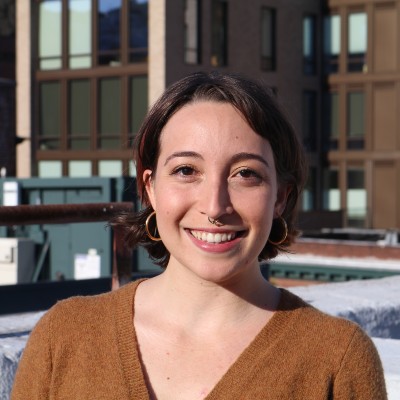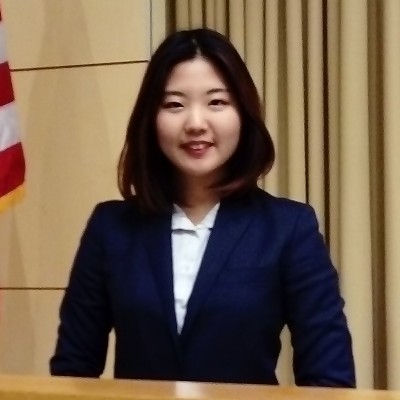2020 Conference on New Media, Tech & Democracy
Agenda Overview
Media In Crisis: Reporting In An Era of Fake News & Distrust
Wednesday October 7th– 12 pm ET
Our era of failed leadership and global crises is compounded by an international decline in democracy and the detrimental impacts of COVID-19. In this context, editors and reporters face leaders that spark distrust in the words and motives of some of our longest-standing institutions and are confronted with the ascent of “fake news” as social media platforms become unofficial news publishers. Authoritarian leaders spinning their own narratives through independent channels, alongside threats faced by a free press under political repression, only complicate reporting. This panel will feature the perspectives of a range of distinctive journalists and media experts. The conversation will focus on the challenges that journalists and media organizations face on the frontlines to publish the truth in a rapidly evolving information ecosystem.
Debating Free Speech: Charting The Gap Between U.S. & EU Online Content Regulation
Thursday October 8th– 11 am ET
Debate has raged around whether Section 230 of the Communications Decency Act should be amended as Big Tech and regulators grapple with controversial online content moderation practices and their impact on free speech. Trump’s recent Social Media Executive Order highlights how the EU and U.S. are taking radically different approaches to overhaul how platforms should treat user content as they reexamine and update long standing legal protections. The discussion will center around how policymakers should treat user-generated content on these sites – which could consist of hate speech, incite violence or spread disinformation – and what legal ramifications platforms should face with respect to those decisions.
How our Modern Media Landscape Fueled the COVID-19 Infodemic
Thursday October 8th – 12.30 pm ET
This panel will explore why COVID-19 conspiracy theories, dubious cures, anti-mask groups and the like took over social media platforms in the wake of the pandemic. From defining an infodemic, to exploring its origins and its subsequent proliferation, this panel will then dive into the response from Big Tech to tackle crucial public health disinformation and recommend how policymakers can better anticipate and prevent this sort of rapid-fire spread, and potentially save countless lives. We will encourage panelists to present specific case studies so the audience can closely follow the journey and progression of posts to better understand why they blossom and how they can better be tamped down.
2020 Election Security: Combating Digital Threats On The World Stage
This will be a set of two panels with one focused on key foreign interference threats to the US Elections.
Biometric Revolution? Election Technology & Digital Democracy in Africa
Friday October 9th – 12 pm ET
Multiple countries in Africa have been attempting to improve the election process to achieve digital democracy through biometrics with the help of frameworks and technology developed abroad and locally. How successful have these efforts been so far and what are the enduring concerns and threats to democracy, especially during COVID times? This panel will provide an overview of the legislative, market, and governance achievements and challenges that some countries have experienced in the implementation of new biometric election technology.
Protecting US Elections From Foreign Interference
Friday October 9th – 2 pm ET
Since the last big election hack, the US has become increasingly more attuned to and aware of potential foreign interference. This panel will illuminate which foreign actors may pose a danger to the democratic process, outline the tactics being used, how they may have advanced since the last big election hack, and conclude with recommendations to effectively arm up to combat the latest cybersecurity threats and hacks that may prevent or dilute the rush to the polls.
Conference Organisers

Adriana Lamirande (Conference Chair)
Adriana is a second year MA in Law & Diplomacy candidate with a focus on tech policy and human rights. She previously worked at a tech PR firm in San Francisco representing cybersecurity and internet companies, which led to her interest in exploring what regulatory frameworks would best support free speech and digital rights in social media content moderation today. Adriana is currently a Policy Intern at New America’s research organization Ranking Digital Rights.

Kate Weine (Panel Lead)
Kate is a Master of Arts in Law & Diplomacy Candidate at The Fletcher School of Law & Diplomacy, where she focuses on security and conflict resolution. She is interested in systems of governance, as well as the intersection of media, technology, and human rights. Before Fletcher, Kate spent three years on the Global Technology Team at Internews, where she worked on global and country-level digital rights programs. Kate is currently an intern at the International Crisis Group. She holds a B.A. in International Relations and Peace & Justice Studies from Tufts University.

Meg Harris (Panel Lead)
Meg is a 2nd year MALD focusing on international communication, public diplomacy, and Pacific Asia. Before coming to Fletcher, Meg spent a year as Boren Scholar studying Japanese language and culture in Kyoto. Her work at Fletcher is focused on facilitating international collaboration and communication through increased dialogue and cultural understanding. She is currently the summer outreach intern for the World Affairs Council of New Hampshire, and is also completing a research assistantship at Fletcher dealing with thought and leadership/management.

Victoria Yu (Panel Lead)
Victoria is a Class of 2021 MA in Law & Diplomacy student studying International Communications & Business for Social Impact, focusing on the intersection of US-China relations, soft power, digital human rights, and digital governance. Pre-Fletcher, she worked in a Sino-Canadian tech transfer research center in Tianjin and as an education consultant in Beijing, China. Through the 2019-2020 academic year, Victoria interned with the US State Dept Global Engagement Center researching Chinese state-sponsored malign influence and information operations. She graduated from Wellesley College with a double major in International Relations-History and Comparative Literature.

Kanako Kimura (Logistics Lead)
Kanako is a Master of Arts in Law and Diplomacy candidate focusing on economics and international security. Prior to Fletcher, Kanako worked in startups for Venture Capital traveling Japan and the US and recently had a summer intern at the United Nations Secretariat in New York. Kanako is originally from Tokyo, Japan, and holds a Bachelor in Economics from Tokyo University in Japan. U.S.-Japan Council Tomodachi-Scholar.

Alex (Social Media Strategist)
Alex is a second-year Master of Arts in Law & Diplomacy student, focusing on development economics. Prior to Fletcher, she worked for a financial news organization on Wall Street, a foreign policy nonprofit in Washington, D.C., and a social services nonprofit in Cambodia. Alex is currently interning with DAI’s Economic Growth team. She graduated from New York University with a Bachelor of Arts in Politics and Global Studies.
